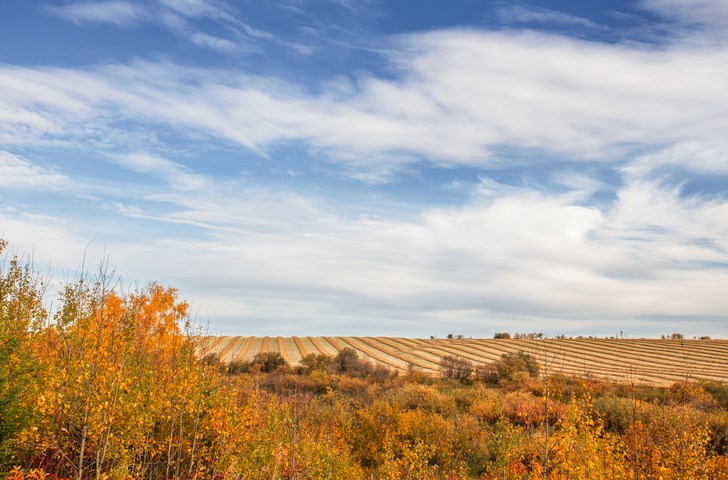With normal forage sources in short supply, straw that may be used in winter cow rations is in higher demand than normal. Cereal, pulse, flax and canola straw are all useful in building a feeding plan for the upcoming winter. When it comes to selling or buying straw after the crop has been harvested, there are a few things to keep in mind.
The most important thing is to have a written agreement between the buyer and the seller. This will help avoid conflict between parties as it will ensure both parties discuss and agree to all of the terms of the agreement prior to the sale or any work taking place. Some of the factors to consider in this agreement are: how long after combining until the straw is baled, how soon bales will be removed from the field, and when payment should be expected. Another consideration is how the straw will be priced. If the straw will be sold by the bale or by the pound, those terms should be outlined in the written agreement. It is common practice to sell straw by the bale with an average weight of around 1,000 lbs but large round straw bales will weigh anywhere from 800 to 1,200 lbs depending on the type of straw and also baler settings. It might be useful to weigh a few bales or a few loads to determine average bale weight and price it by the pound.
The next consideration is how to value the straw. Online marketplaces are a good place to start as local asking prices for straw will be available. Other options are to put a value on the approximate nutrients being removed and charge accordingly. The Ministry of Agriculture has an online calculator that allows you to input current fertilizer prices and will calculate the value of nutrients lost with straw removal. A value for lost organic matter might also be applied.
Research has shown that occasional baling of straw has little effect on subsequent yields. In a year when feed supply is low, allowing straw to be baled could add to the grain farmer's bottom line and also provide feed for his ranching neighbour.
With many cattle producers looking for roughage to feed their herds this winter, selling straw in the swath may make more sense this year. If selling straw in the swath is the right choice for your operation, be sure to have a written agreement that both parties agree to and use the available tools to determine a reasonable price. For further information, contact your local Saskatchewan Ministry of Agriculture regional office or call the Agriculture Knowledge Centre at 1-866-456-2377.
Travis Peardon, PAg, is a Livestock and Feed Extension Specialist




